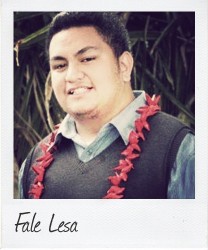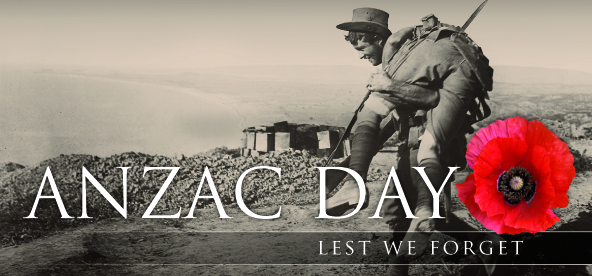“Lest we forget: ANZAC day”
April 24th, 2013 A WWI battle that took a horrendous toll was a defining moment in the histories of Australia and New Zealand, writes Fale Lesa, 23, a Commonwealth Correspondent from New Zealand, who says the legacy of that battle shaped both countries.
A WWI battle that took a horrendous toll was a defining moment in the histories of Australia and New Zealand, writes Fale Lesa, 23, a Commonwealth Correspondent from New Zealand, who says the legacy of that battle shaped both countries.
On the 25th of April every year for as long as anybody remembers, both Australia and New Zealand commemorate ANZAC Day.
In short, it was the dawn of WWI. Australian and New Zealand troops were joined at the hip as one military unit. The ANZAC unit was instructed by Churchill and his advisers to storm the Gallipoli peninsula (now Turkey) in order to conquer the capital city of the greater Ottoman Empire, loyal to Germany.
What resulted was a military stalemate that lasted some eight months. Instead of claiming the city, the move instead conquered the lives of some12,000 ANZAC troops. Many more endured sufferings that we can not even begin to imagine. Eventually the campaign was called off, and the Allied troops evacuated.
For those at home in New Zealand, the symbolism from this insignificant conflict would last the distance.
In some ways, New Zealanders had come of age by fighting for ‘Queen and Country’ in the Boer Wars of October 1889. But that was a family affair involving the Great British Empire and its possessions in southern Africa. WWI was much greater still, and it was here on the battlefields of the foreigner that New Zealand truly came of age, particularly as a people comfortable with the idea of nationhood.
For the Australians, it wasn’t very different. WWI was a short 14 years after the Federation of Australia, and this was the very first overseas activity for the union.
As you can imagine, ANZAC Day isn’t just any public holiday for the two countries. It is the commemoration of maturity. And it is a recognition of our coming of age. As neighbours and as close friends, our countries celebrate a shared history, and we remember the sacrifices that have come before us.
At the going down of the sun and in the morning,
We will remember them.
………………………………………………………………………………………………
About me:
Fale Lesa brings more than seven years of community and youth development experience to his writings. He was recently rewarded for these experiences with a career at New Zealand’s Ministry of Foreign Affairs & Trade. As an aspiring diplomat, degrees in law and German BA/LLB make him an exceptional candidate for an overseas posting.
…………………………………………………………………………………………………………………
Opinions expressed in this article are those of the author and do not necessarily represent the views of the Commonwealth Youth Programme. Articles are published in a spirit of dialogue, respect and understanding. If you disagree, why not submit a response?
To learn more about becoming a Commonwealth Correspondent please visit: http://www.yourcommonwealth.org/submit-articles/commonwealthcorrespondents/
…………………………………………………………………………………………………………………




